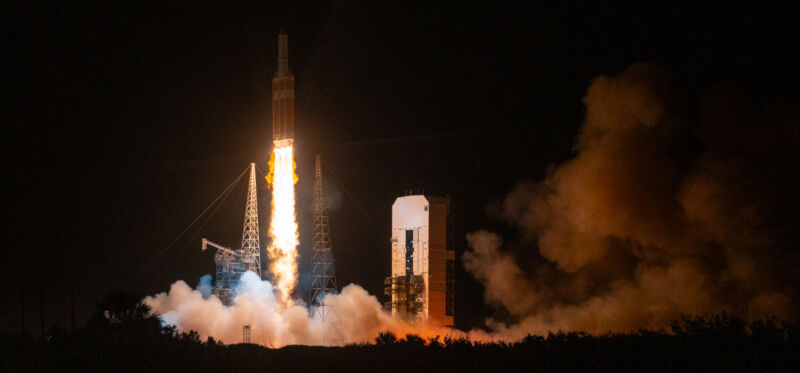
Welcome to Edition 5.43 of the Rocket Report! I am thrilled to announce that Stephen Clark is joining Ars Technica to cover space alongside me. You've already read some of his fine work here in the Rocket Report, as he has been the long-time editor of Spaceflight Now. But now, starting Monday, he'll be writing frequently for Ars and periodically authoring the Rocket Report. Accordingly, after next week, there will no longer be any breaks in this newsletter except for the year-end holidays.
As always, we welcome reader submissions, and if you don't want to miss an issue, please subscribe using the box below (the form will not appear on AMP-enabled versions of the site). Each report will include information on small-, medium-, and heavy-lift rockets as well as a quick look ahead at the next three launches on the calendar.

North Star moves from LauncherOne to Electron. Canada’s NorthStar Earth and Space has signed a multi-launch deal with Rocket Lab after Virgin Orbit’s bankruptcy scotched plans to deploy its space situational awareness satellites this summer, Space News reports. Rocket Lab will launch the venture’s first four satellites this fall on an Electron rocket, NorthStar said this week. Spire Global is providing the satellites, each the size of 16 CubeSats.
Wait, Electron has more capacity? ... NorthStar had planned to launch three satellites in its initial batch with Virgin Orbit before the air-launch company fell into bankruptcy in April. Using larger capacity on Electron to deploy more satellites to low-Earth orbit gives its SSA system greater coverage from the outset for early adopters, said NorthStar Chief Operating Officer David Saint-Germain. "We were able to change a negative into a positive," Saint-Germain said. It's interesting to hear that Electron had a larger capacity, as LauncherOne was advertised as having a capacity of 500 kg to low-Earth orbit, compared to 300 kg for Electron. Another reason for Virgin Orbit's troubles, no doubt. (submitted by Ken the Bin and Joey SIV-B)
Rocket Lab completes hypersonic flight. The launch company said this weekend that it successfully launched its first suborbital testbed launch vehicle, called HASTE (Hypersonic Accelerator Suborbital Test Electron), for a confidential customer (i.e., almost certainly the US military). The inaugural launch occurred on June 17 from Launch Complex 2 at Virginia’s Mid-Atlantic Regional Spaceport within NASA’s Wallops Flight Facility.
Lots of tricks up its sleeve ... According to Rocket Lab, the HASTE suborbital launch vehicle is derived from the Electron rocket but has a modified kick stage for hypersonic payload deployment, a larger payload capacity of up to 700 kg, and options for tailored fairings to accommodate larger payloads, including air-breathing, ballistic re-entry, boost-glide, and space-based applications payloads. (submitted by Ken the Bin)
RFA to launch from French Guiana. German company Rocket Factory Augsburg announced this week that it signed a binding term sheet with the French space agency CNES to offer its launch services from the Kourou Space Center in French Guiana. The company plans to start flying the RFA One rocket from the ELM-Diamant complex as its second launch site starting in 2025. Previously, RFA has said its debut launch will take place at the SaxaVord spaceport in the northern United Kingdom.
More flexibility beyond polar launches ... "By securing a launch site at the Diamant launch complex, this agreement allows RFA to offer GTO, MEO, GEO, and even lunar and interplanetary flight profiles to its customers," said Jörn Spurmann, chief commercial officer at RFA, in a news release. RFA is one of several launch companies competing in the commercial rocket industry in Europe. None of these companies has launched an orbital test flight, however. (submitted by EllPeaTea and Ken the Bin)
Reader Comments (325)
View comments on forumLoading comments...